'Linder: Femme/Objet' exhibition at Musée d'Art Moderne, Paris
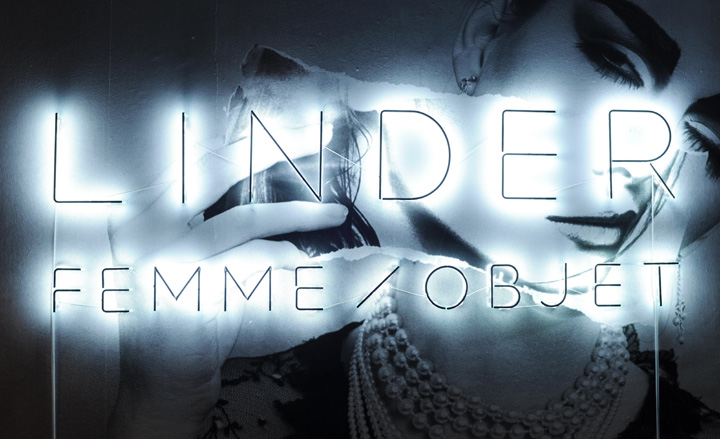
Midway through the Linder exhibition, a new show at the Musée d'Art Moderne in Paris, four words in neon glow from behind a gauzy voile curtain: Anatomy is not destiny.
Borrowed from Freud, the notion as appropriated by British artist Linder Sterling (born Linda Mulvey) seems especially fitting within the context of her highly charged collages. With the precision of a plastic surgeon and the obsession of a stalker, she grafts new eyes and lips onto existing magazine images - and not necessarily to make them prettier. Anatomy, it seems, is in the hands of the one wielding the scalpel.
As the first retrospective on Linder, the show takes us through her gritty early days in Manchester capturing the transvestites at the local Dickens Bar through her involvement with the Buzzcocks. Next, it's onto her myriad manipulations of women from magazines whom she has disfigured, masked or violated with flowers, household appliances or pastry. Pornography with a side of key lime pie: this is how she serves up the images we are fed on a daily basis but that we often fail to digest.
All the while, Linder haunts the show, first in self-portraits and the infamous video from 1978 at the Haçienda (in which she wears a meat ensemble decades before Lady Gaga); later, a series by photographer Tim Walker.
To situate the collages - frequently no larger than a magazine page - within the larger narrative on Linder-style feminism required a well-conceived mise-en-scène. Enter British design studio A Practice for Everyday Life (APFEL) and architects Carmody Groarke, past Wallpaper* Handmade collaborators who also partnered up on the recent Bauhaus show at the V&A.
'It was very important that our approach not be too overtly sexualized or political as that would have detracted from the work,' says APFEL's Stephen Osman. 'We wanted the atmospheres to be fairly ambiguous but we still wanted to allude to them.'
To that effect, grey walls and neon evoke the grittiness of Linder's Manchester period. Once we arrive at her work since 2000, we progress through a spacious winding room divided by the aforementioned curtains, which apparently suggest a certain suburban voyeurism (and, more obliquely, her hometown's former reputation as a 'Cottonopolis'). The walls are provocatively pink - by turns fleshy and Pepto-Bismol. The final series of lightbox images - their juxtaposition of porn and pastry pushed even further - has been mounted in a gallery covered in black vinyl. Does this arouse the appetite or disgust?
To each her own.
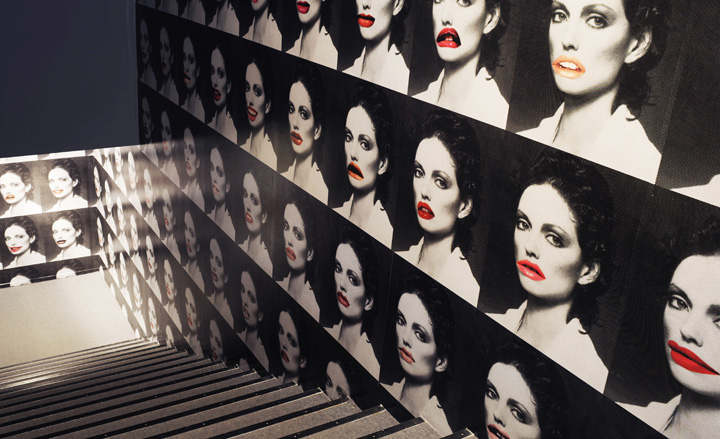
'Principle of Totality (Version I)', 2012 Courtesy of Stuart Shave/Modern Art
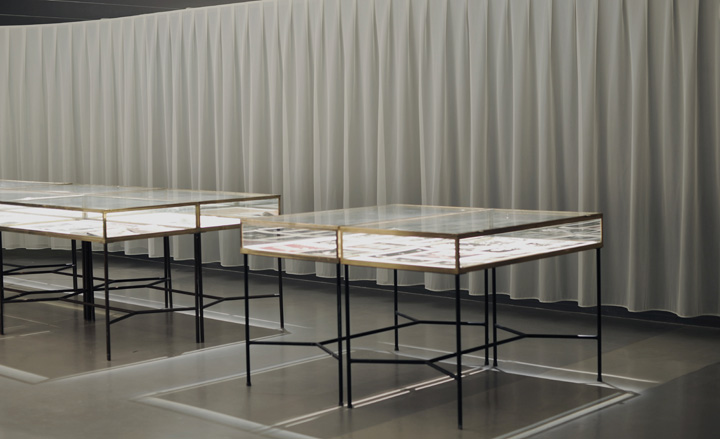
The exhibition was designed by APFEL and Carmody Groarke
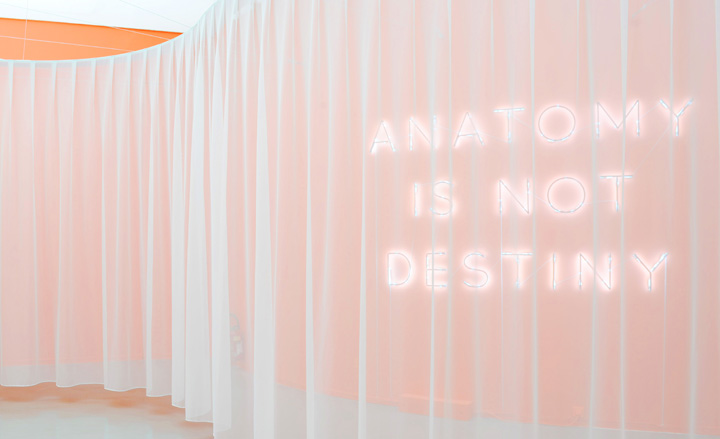
Curtains lend the show a certain suburban voyeurism
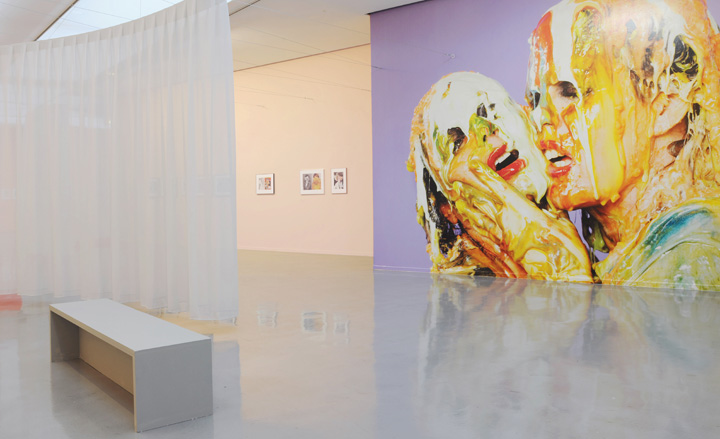
'Action Rituelle des Ancêtres', 2011Courtesy of Stuart Shave/Modern Art.
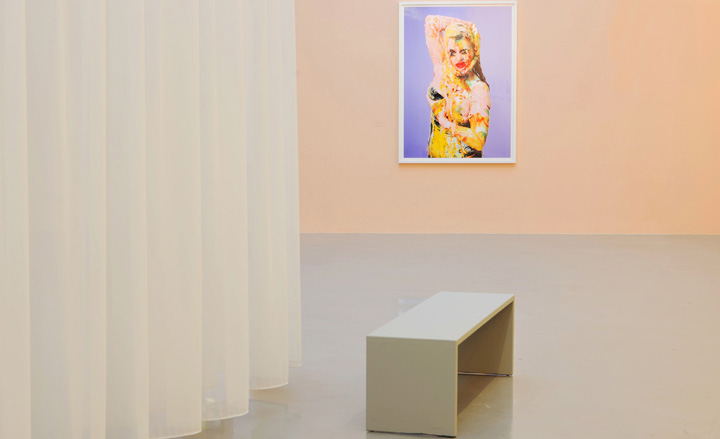
'Danse Sacrale (L'Élue)', 2011. Courtesy of Stuart Shave/Modern Art.
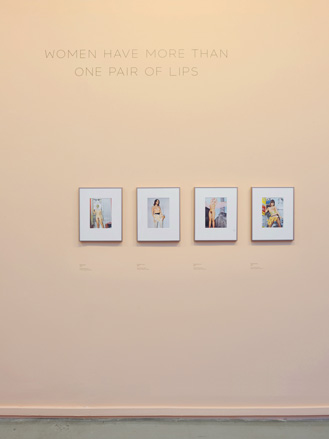
From left: 'Monogenes', 'Deceptio Visus', 'Puella Aeternus' and 'Enantiodromia', all from 2008 Courtesy of Stuart Shave/Modern Art.
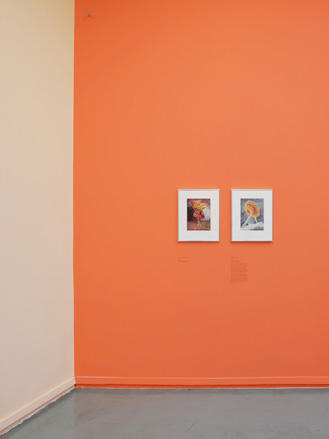
From left: 'Cakewalk Balletomane' and 'Cakewalk dégagé', all from 2010 Courtesy of Stuart Shave/Modern Art.
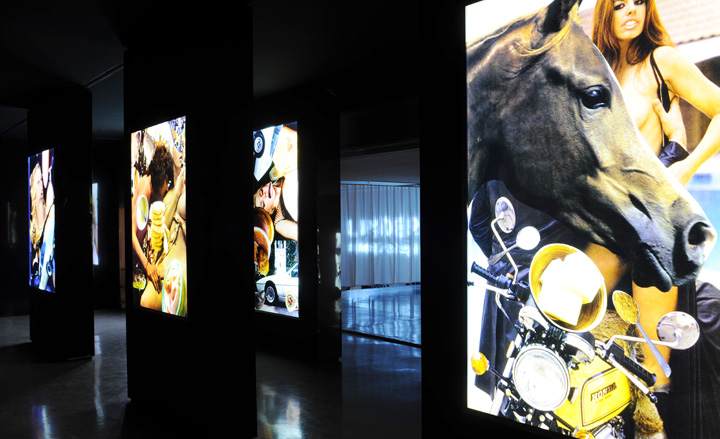
rom left: 'Sehnsucht', 'Neo-Reichian Massage', 'Home! Sweet Home!', 'Ether, God and Devil', all from 2011 Courtesy of Stuart Shave/Modern Art.
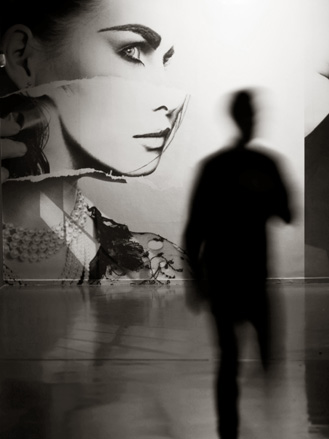
'Come find me when I'm hiding', 1981. Courtesy of Stuart Shave/Modern Art.
ADDRESS
Musée d'Art Moderne
11, avenue du Président Wilson
75116 Paris
France
Wallpaper* Newsletter
Receive our daily digest of inspiration, escapism and design stories from around the world direct to your inbox.
-
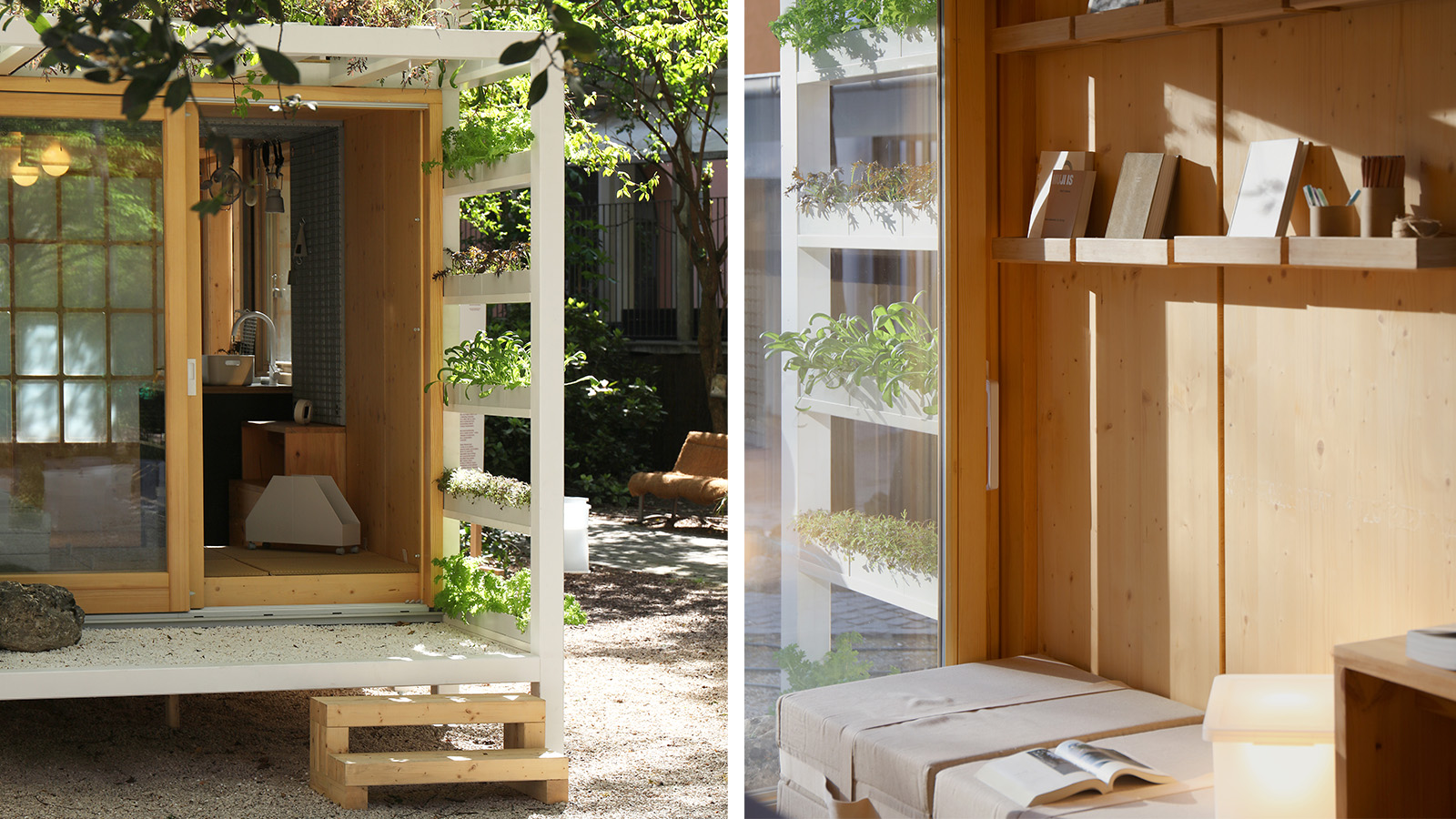 Japan in Milan! See the highlights of Japanese design at Milan Design Week 2025
Japan in Milan! See the highlights of Japanese design at Milan Design Week 2025At Milan Design Week 2025 Japanese craftsmanship was a front runner with an array of projects in the spotlight. Here are some of our highlights
By Danielle Demetriou
-
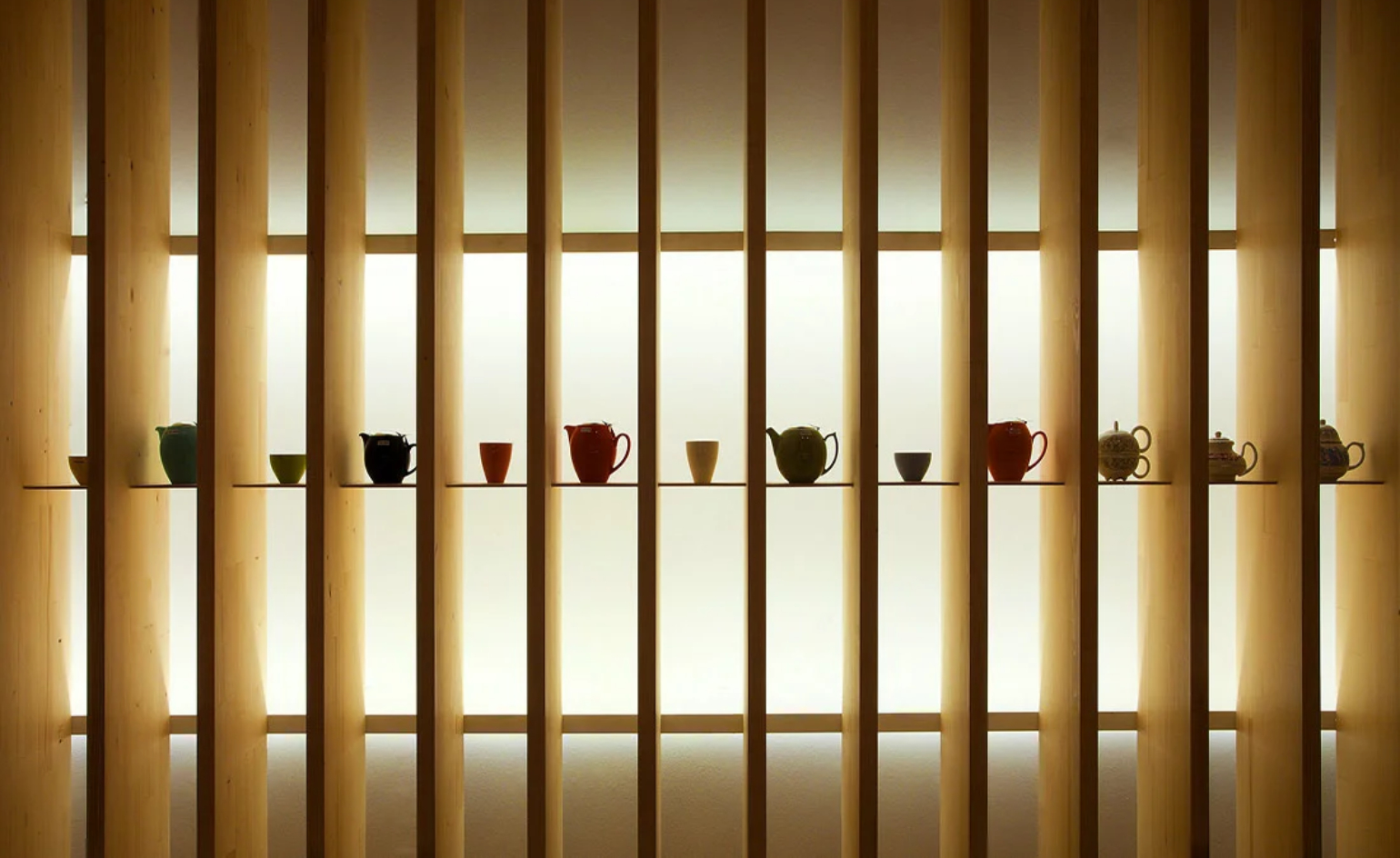 Tour the best contemporary tea houses around the world
Tour the best contemporary tea houses around the worldCelebrate the world’s most unique tea houses, from Melbourne to Stockholm, with a new book by Wallpaper’s Léa Teuscher
By Léa Teuscher
-
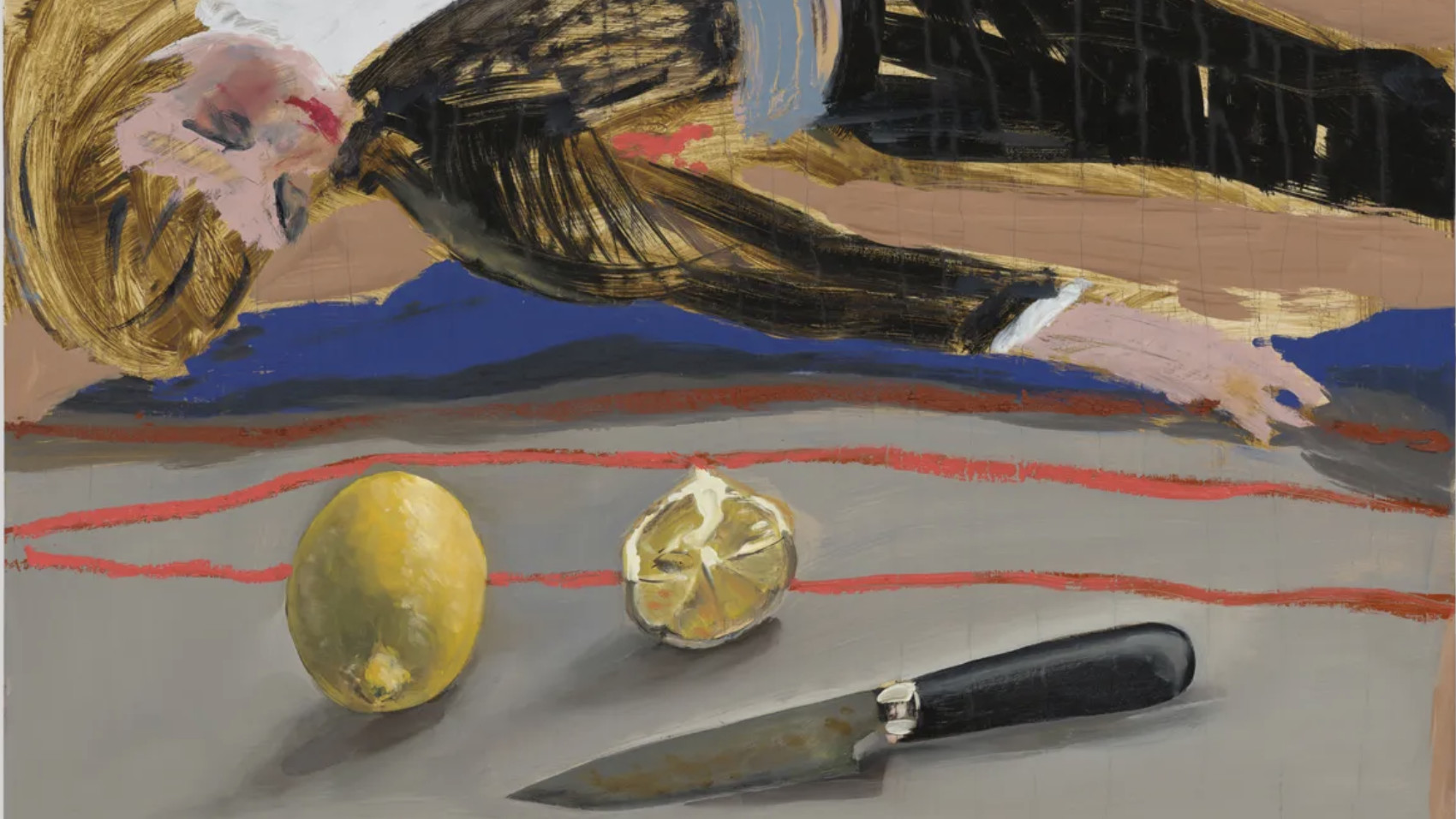 ‘Humour is foundational’: artist Ella Kruglyanskaya on painting as a ‘highly questionable’ pursuit
‘Humour is foundational’: artist Ella Kruglyanskaya on painting as a ‘highly questionable’ pursuitElla Kruglyanskaya’s exhibition, ‘Shadows’ at Thomas Dane Gallery, is the first in a series of three this year, with openings in Basel and New York to follow
By Hannah Silver
-
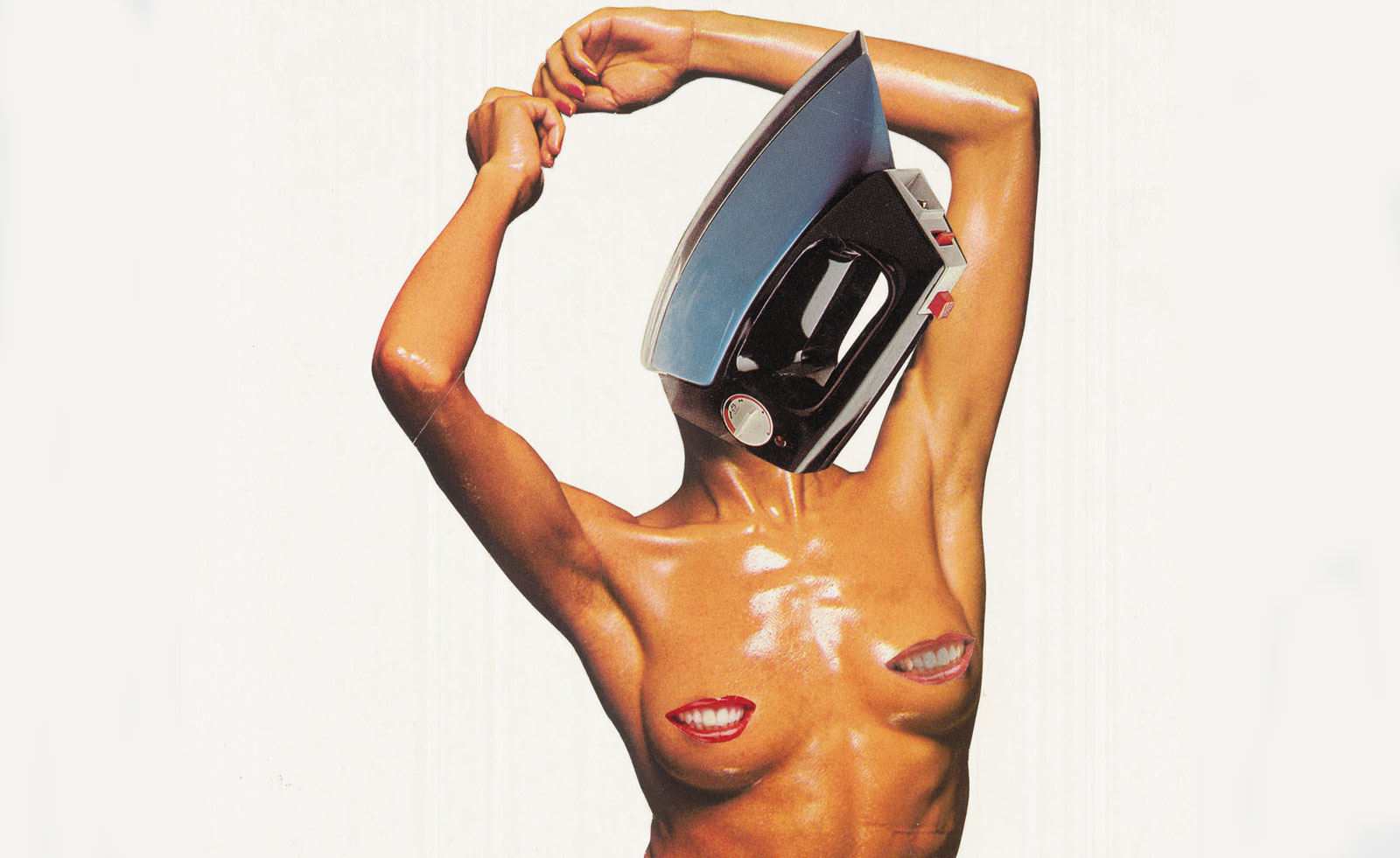 'I want to get into these images and perfume them': Linder's retrospective opens at the Hayward Gallery
'I want to get into these images and perfume them': Linder's retrospective opens at the Hayward Gallery'Linder: Danger Came Smiling' gathers fifty years of the artist's work at the Hayward Gallery. We meet the punk provocateur ahead of her first retrospective
By Hannah Silver
-
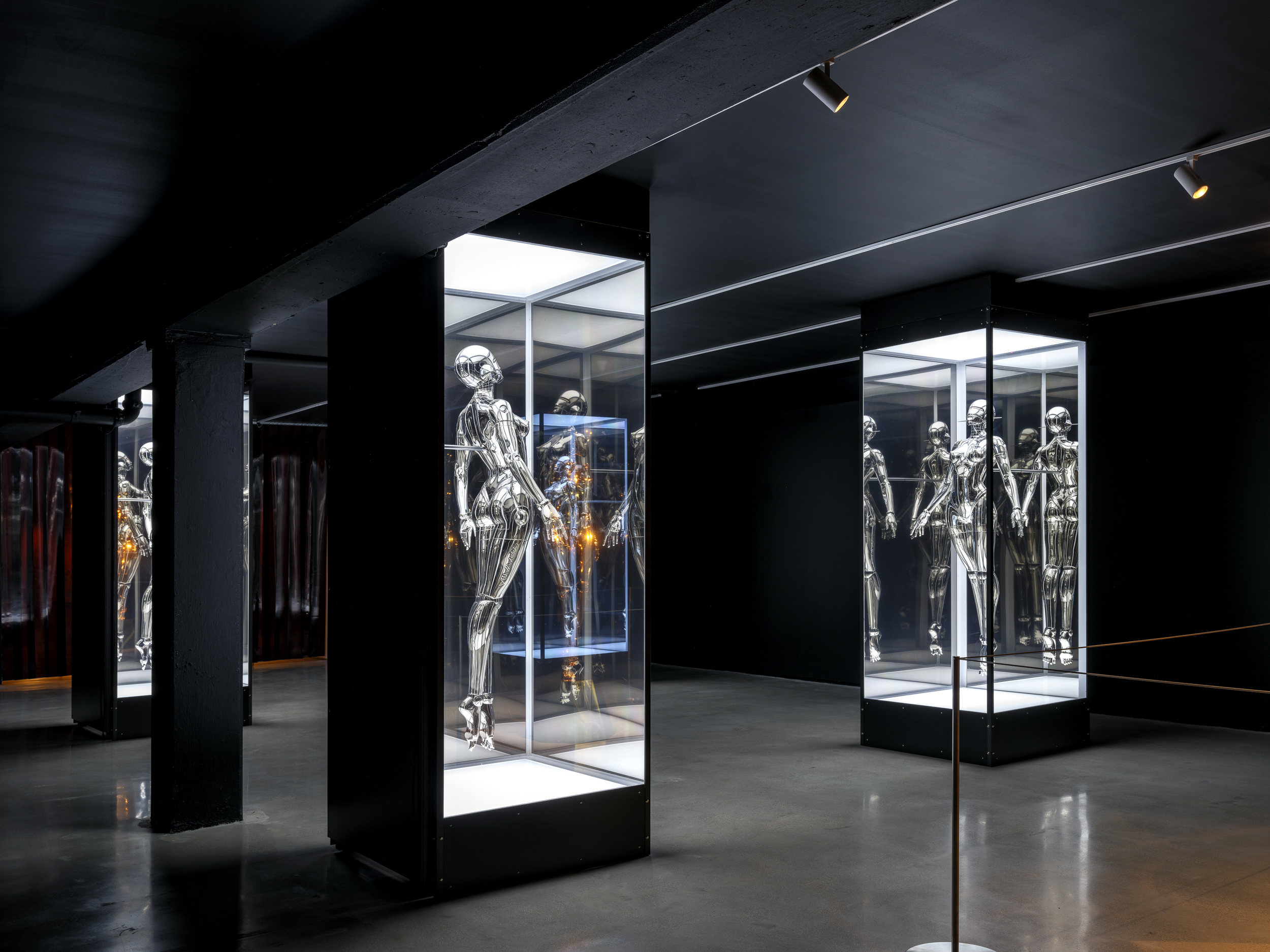 Miami’s new Museum of Sex is a beacon of open discourse
Miami’s new Museum of Sex is a beacon of open discourseThe Miami outpost of the cult New York destination opened last year, and continues its legacy of presenting and celebrating human sexuality
By Anna Solomon
-
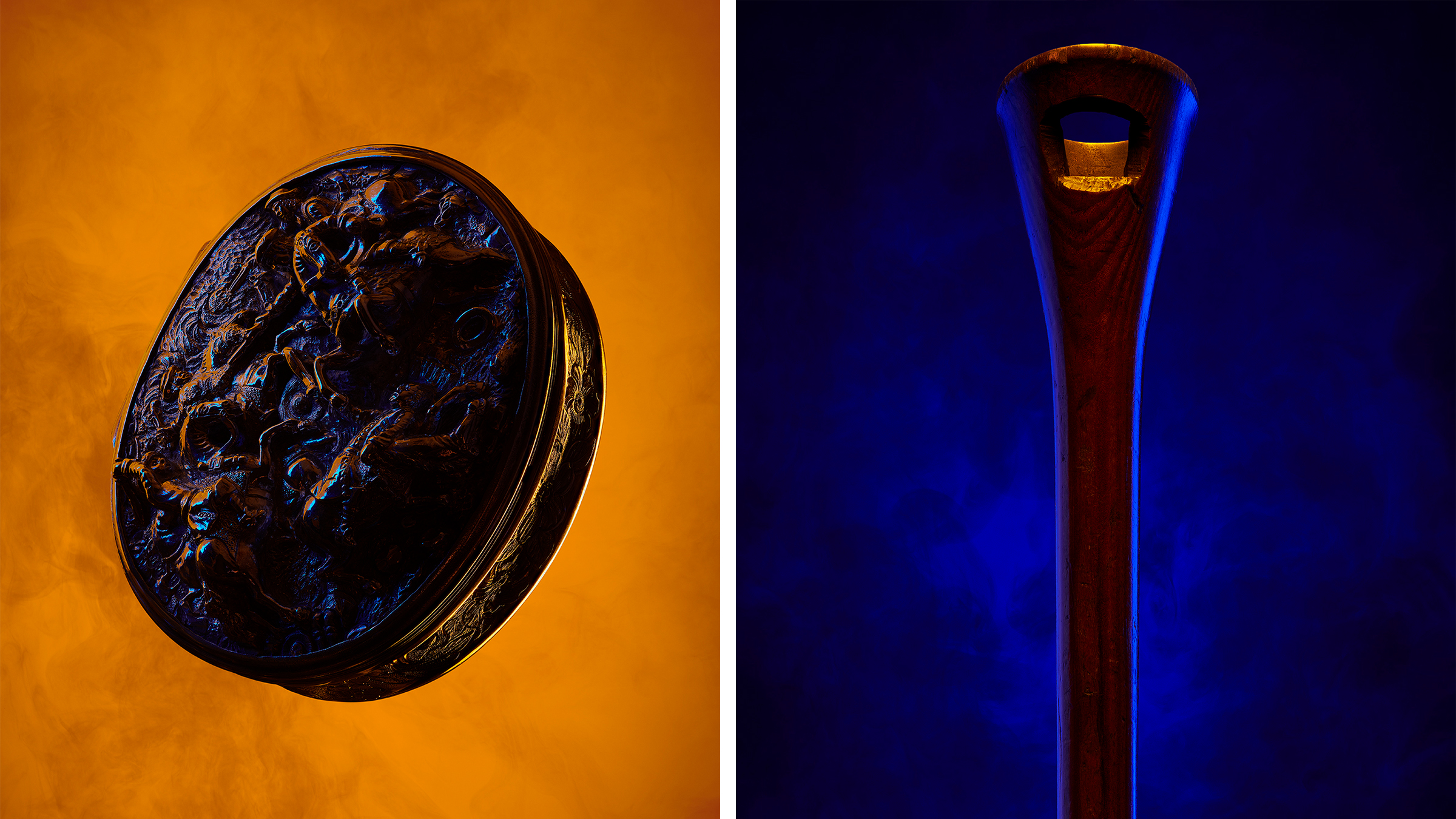 Royal College of Physicians Museum presents its archives in a glowing new light
Royal College of Physicians Museum presents its archives in a glowing new lightLondon photography exhibition ‘Unfamiliar’, at the Royal College of Physicians Museum (23 January – 28 July 2023), presents clinical tools as you’ve never seen them before
By Martha Elliott
-
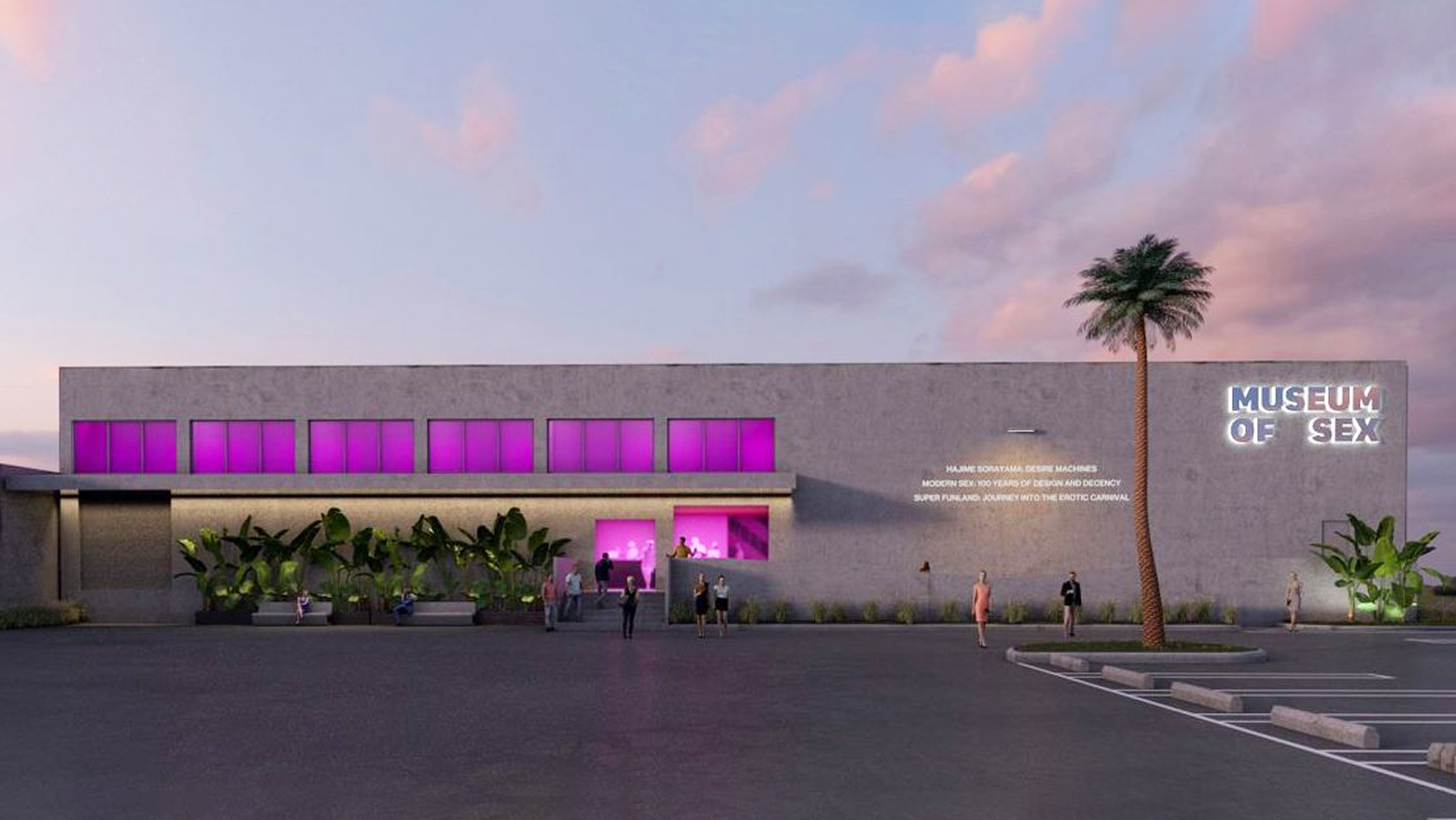 Museum of Sex to open Miami outpost in spring 2023
Museum of Sex to open Miami outpost in spring 2023The Museum of Sex will expand with a new Miami outpost in spring 2023, housed in a former warehouse reimagined by Snøhetta and inaugurated with an exhibition by Hajime Sorayama
By Harriet Lloyd-Smith
-
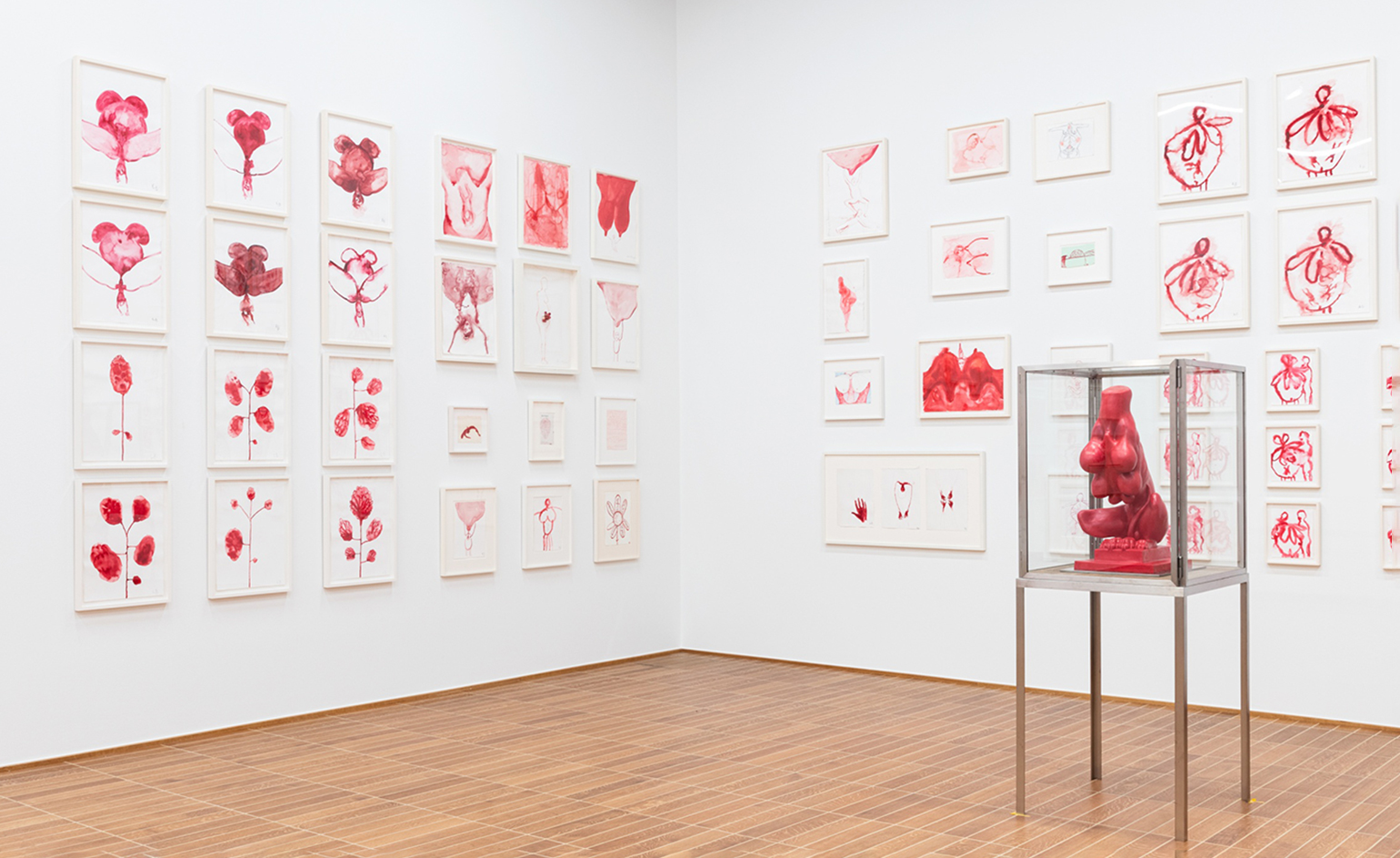 Jenny Holzer curates Louise Bourgeois: ‘She was infinite’
Jenny Holzer curates Louise Bourgeois: ‘She was infinite’The inimitable work of Louise Bourgeois is seen through the eyes of Jenny Holzer in this potent meeting of minds at Kunstmuseum Basel
By Amah-Rose Abrams
-
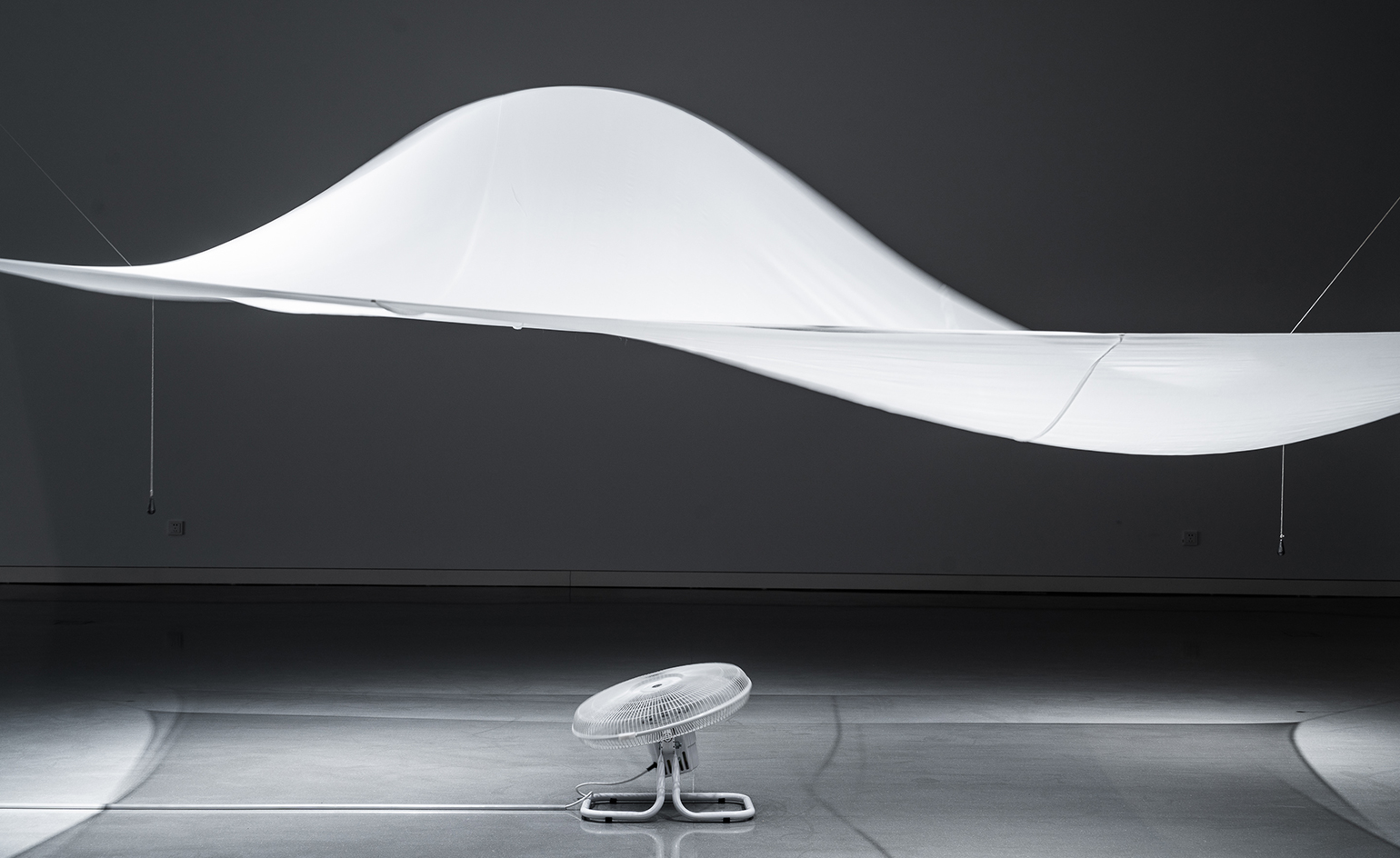 ‘A Show About Nothing’: group exhibition in Hangzhou celebrates emptiness
‘A Show About Nothing’: group exhibition in Hangzhou celebrates emptinessThe inaugural exhibition at new Hangzhou cultural centre By Art Matters explores ‘nothingness’ through 30 local and international artists, including Maurizio Cattelan, Ghislaine Leung, Hiroshi Sugimoto, Liu Guoqiang and Yoko Ono
By Yoko Choy
-
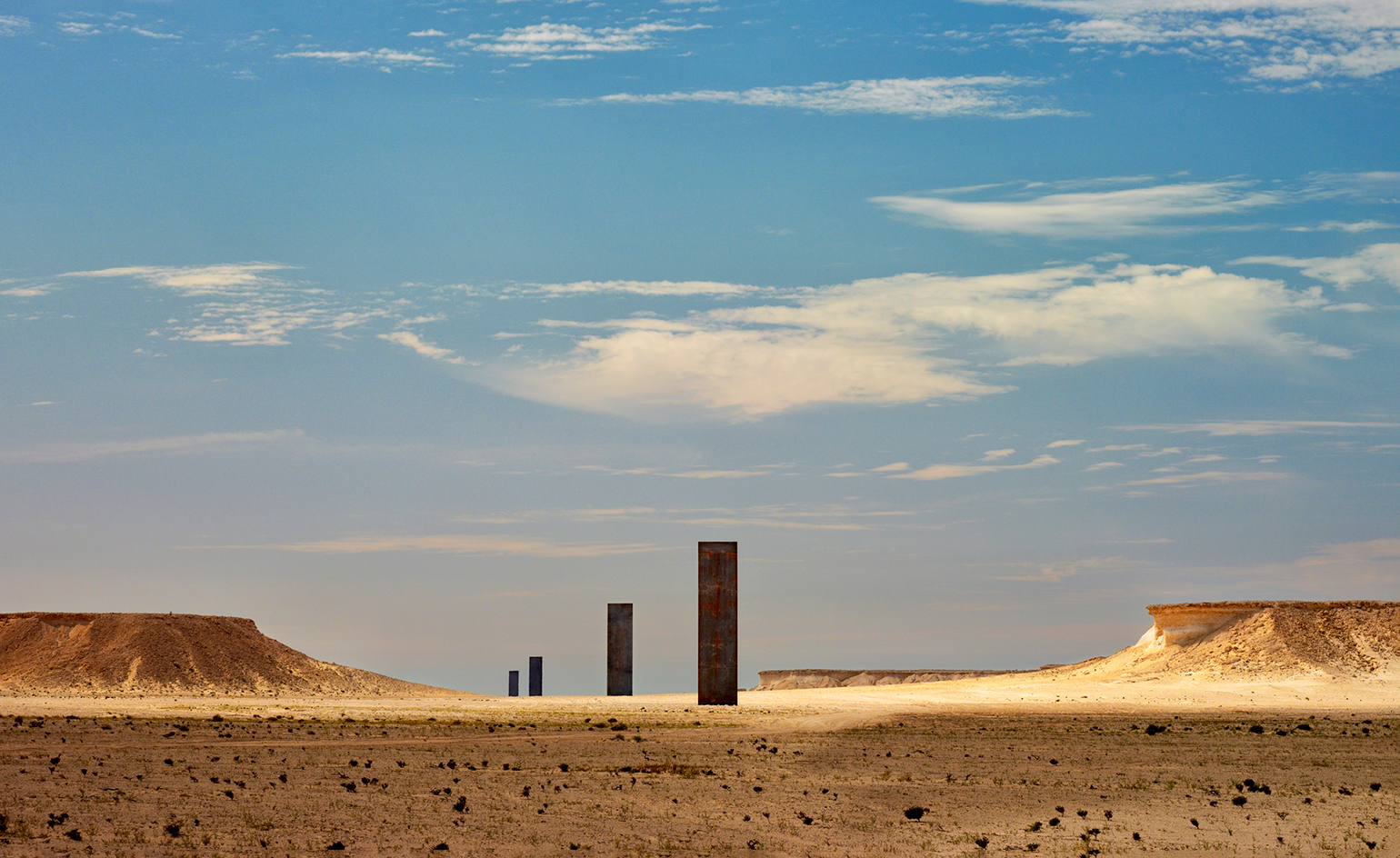 Three days in Doha: art, sport, desert, heat
Three days in Doha: art, sport, desert, heatIn our three-day Doha diary, we record the fruits of Qatar’s cultural transformation, which involved Jeff Koons, a glass palace of books, and a desert sunset on Richard Serra
By Harriet Lloyd-Smith
-
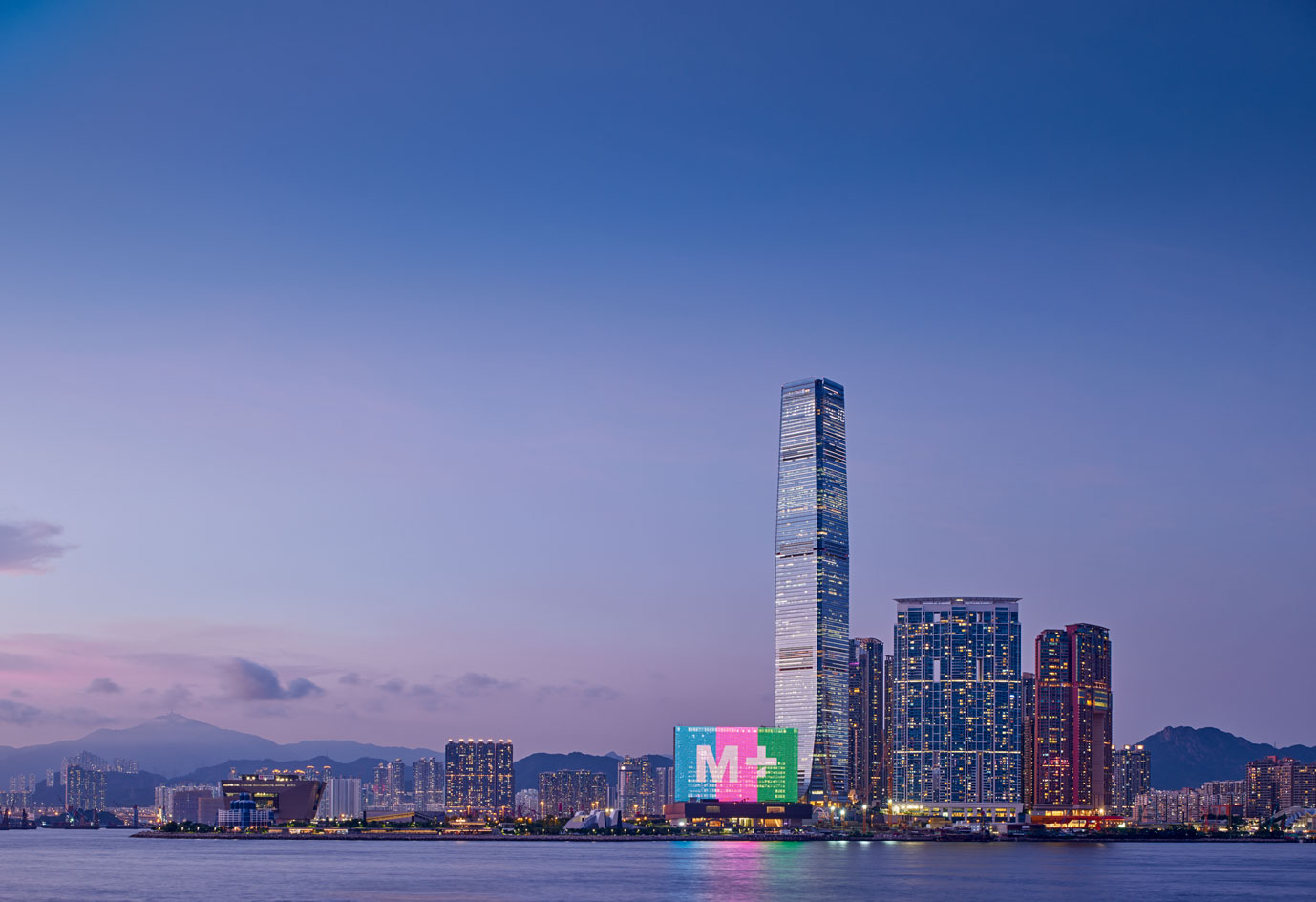 Hong Kong’s M+ Museum to open with six thematic shows
Hong Kong’s M+ Museum to open with six thematic showsAsia’s first global museum of contemporary visual culture will open on 12 November in Hong Kong’s West Kowloon Cultural District, with six themed shows spanning art, design and architecture
By Harriet Lloyd-Smith